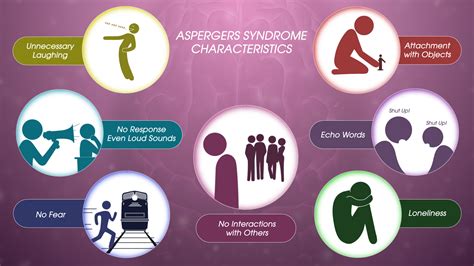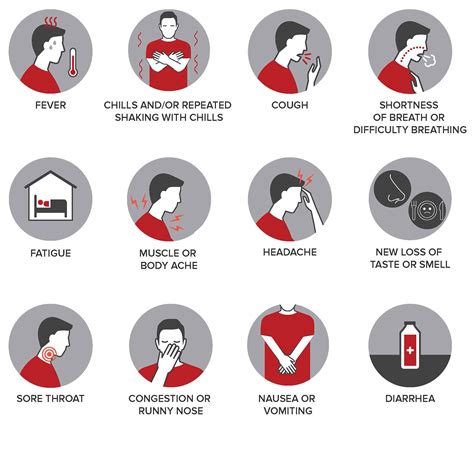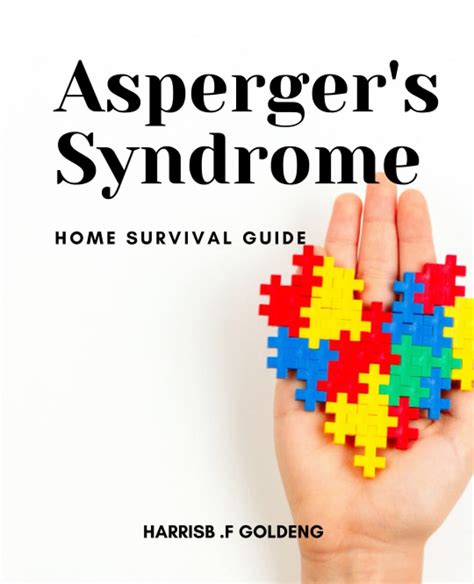Intro
Discover Asperger Syndrome in adults, its symptoms, diagnosis, and treatment. Learn about autism spectrum disorder, social challenges, and coping strategies for adults with Aspergers.
Asperger Syndrome, also known as Asperger's Disorder, is a neurological disorder that affects an individual's ability to interact and communicate with others. It is a form of Autism Spectrum Disorder (ASD) that is typically characterized by difficulties in social interaction, verbal and nonverbal communication, and repetitive behaviors. While Asperger Syndrome is often associated with children, it can also affect adults, and its impact can be just as significant. In recent years, there has been an increasing awareness of the need to support and understand adults with Asperger Syndrome, and this article aims to provide a comprehensive overview of the topic.
Asperger Syndrome in adults can manifest in different ways, and its effects can vary widely from person to person. Some adults with Asperger Syndrome may experience difficulties in forming and maintaining relationships, while others may struggle with anxiety, depression, or other mental health issues. Despite these challenges, many adults with Asperger Syndrome are able to lead successful and fulfilling lives, and with the right support and accommodations, they can thrive in their personal and professional lives. It is essential to recognize the unique strengths and challenges of adults with Asperger Syndrome and to provide them with the resources and understanding they need to succeed.
The importance of understanding and supporting adults with Asperger Syndrome cannot be overstated. By providing a supportive and inclusive environment, we can help adults with Asperger Syndrome to reach their full potential and to lead happy and fulfilling lives. This requires a comprehensive approach that takes into account the complex needs and challenges of adults with Asperger Syndrome, and it involves not only providing practical support and accommodations but also promoting awareness and understanding of the condition. By working together, we can create a more inclusive and supportive society that values and respects the contributions of adults with Asperger Syndrome.
What is Asperger Syndrome?

Causes and Risk Factors
The exact causes of Asperger Syndrome are not fully understood, but it is believed to be related to a combination of genetic and environmental factors. Research suggests that Asperger Syndrome may be caused by differences in brain structure and function, particularly in areas responsible for social interaction and communication. Family history and genetic factors may also play a role, as individuals with a family history of autism or Asperger Syndrome are more likely to develop the condition.Symptoms and Diagnosis

Diagnosing Asperger Syndrome in adults can be a complex process, as the symptoms may be subtle or masked by coping mechanisms. A comprehensive diagnostic evaluation should include a thorough medical and psychological history, as well as observations of behavior and social interactions. The diagnostic criteria for Asperger Syndrome include persistent difficulties in social interaction, verbal and nonverbal communication, and repetitive behaviors, as well as significant impairment in social, occupational, or other areas of functioning.
Treatment and Intervention
While there is no cure for Asperger Syndrome, a range of treatments and interventions can help adults with the condition to manage their symptoms and improve their quality of life. These may include behavioral therapies, such as applied behavior analysis (ABA) and cognitive-behavioral therapy (CBT), as well as medications to manage symptoms of anxiety, depression, or other mental health issues. Social skills training and support groups can also be helpful in improving social interactions and relationships.Living with Asperger Syndrome

Building Relationships
Building and maintaining relationships can be a significant challenge for adults with Asperger Syndrome. They may experience difficulties in understanding social cues, initiating or maintaining conversations, and developing and maintaining relationships. However, with the right support and accommodations, adults with Asperger Syndrome can build and maintain meaningful relationships. This may involve seeking out social support groups or therapy to improve social skills and communication, as well as being open and honest with friends and family about their needs and challenges.Employment and Education

Accommodations and Support
Accommodations and support are essential for adults with Asperger Syndrome to succeed in their careers and educational pursuits. This may include providing flexible scheduling, the use of assistive technology, and social support and counseling to help manage stress and anxiety. Employers and educational institutions can also provide training and education to help staff and faculty understand and support adults with Asperger Syndrome.Mental Health and Wellbeing

Self-Care and Stress Management
Self-care and stress management are essential for adults with Asperger Syndrome to maintain their mental health and wellbeing. This may involve engaging in regular exercise, practicing relaxation techniques such as meditation or deep breathing, and seeking out social support from friends, family, or support groups. Adults with Asperger Syndrome can also benefit from learning stress management techniques, such as cognitive-behavioral therapy (CBT), to help them manage their symptoms and improve their overall wellbeing.Conclusion and Final Thoughts

We invite you to share your thoughts and experiences with Asperger Syndrome in adults. How can we better support and understand adults with this condition? What resources and accommodations have been helpful to you or someone you know? By sharing our knowledge and experiences, we can work together to create a more inclusive and supportive society that values and respects the contributions of adults with Asperger Syndrome.
What is Asperger Syndrome?
+Asperger Syndrome is a neurological disorder that affects an individual's ability to interact and communicate with others. It is characterized by difficulties in social interaction, verbal and nonverbal communication, and repetitive behaviors.
What are the symptoms of Asperger Syndrome in adults?
+The symptoms of Asperger Syndrome in adults can vary widely, but they often include difficulties in social interaction, verbal and nonverbal communication, and repetitive behaviors. Adults with Asperger Syndrome may experience difficulties in understanding social cues, initiating or maintaining conversations, and developing and maintaining relationships.
How is Asperger Syndrome diagnosed in adults?
+Diagnosing Asperger Syndrome in adults can be a complex process, as the symptoms may be subtle or masked by coping mechanisms. A comprehensive diagnostic evaluation should include a thorough medical and psychological history, as well as observations of behavior and social interactions.
What treatments and interventions are available for adults with Asperger Syndrome?
+A range of treatments and interventions can help adults with Asperger Syndrome to manage their symptoms and improve their quality of life. These may include behavioral therapies, such as applied behavior analysis (ABA) and cognitive-behavioral therapy (CBT), as well as medications to manage symptoms of anxiety, depression, or other mental health issues.
How can we support and understand adults with Asperger Syndrome?
+By providing a supportive and inclusive environment, we can help adults with Asperger Syndrome to reach their full potential and to lead happy and fulfilling lives. This requires a comprehensive approach that takes into account the complex needs and challenges of adults with Asperger Syndrome, and it involves not only providing practical support and accommodations but also promoting awareness and understanding of the condition.
